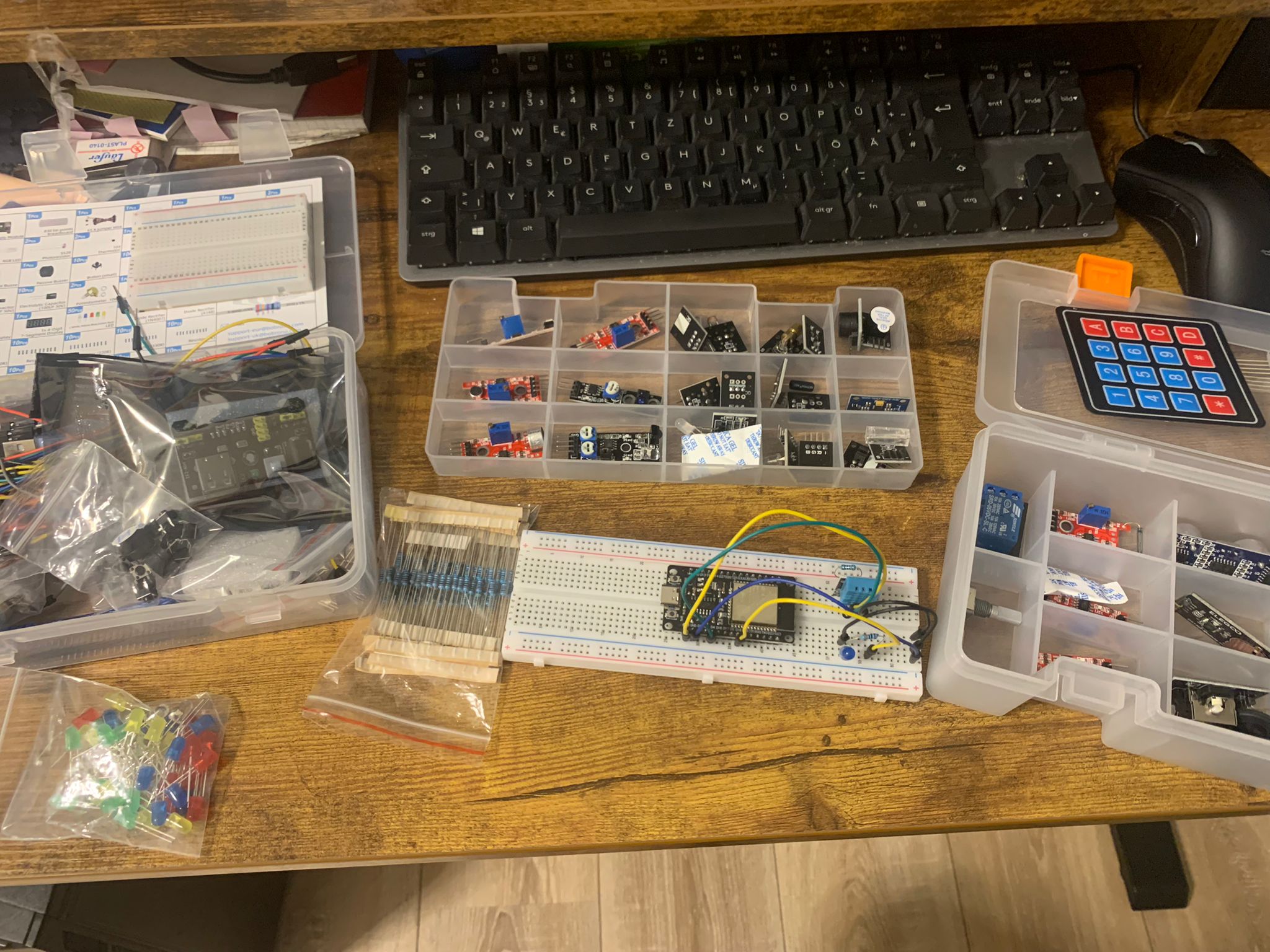Project Overview
Currently I have been learning to build things using Arduino and ESP32 single board computers. My current project is a device with of a number pad, a display and a 3d printed box, that will remind me with sound and light to enter some data twice a day and sends me an email reminding me to enter the data manually if I happen to not be at home. I have been wanting to track things like mood, activity, caffeine consumption etc. for a while. The more classic way would be a mood board - the journaling community has many great examples of that. But there is a big issue for me: Having these things on paper will not allow me to statistically analyze them continuously. Therefore I came up with this solution, which not only reminds me of tracking data, but it also writes them into a GSheet via the google API connection, allowing me to pull it into python and run analyses.

Circuitry
This is where the circuit layout and technical details go
The ESP32
The ESP32 is a versatile microcontroller known for its low power consumption, dual-core processor, and built-in Wi-Fi and Bluetooth capabilities. These features make it ideal for home-built projects requiring wireless connectivity, such as smart home devices, IoT applications, and automation systems. With multiple GPIO pins, ADCs, and PWM outputs, it’s highly adaptable for sensors, relays, and other hardware components. The ESP32’s affordability and ease of programming through platforms like Arduino and MicroPython allow for quick prototyping and implementation, making it my go-to choice for reliable, connected, and customizable DIY projects.
Code
This is where the scripts on the ESP32 and examples of my analysis go:
import numpy as np
from sklearn.ensemble import RandomForestRegressorAnalysis
This is where results and insights go ...
Here’s some things I would be interested in:
- Does my migraine correlate with sleep length / caffeine consumption / exercise / ...
- Correlation of sleep and mood (according to the literature a clear causality, but also in my individual case?). Does this depend solely on sleep length or a sleep schedule (e.g. what happens when shifting both sleeping and waking up back for two hours?
- Getting a smartwatch to track sleep and heart rate and include that in the analysis (Do they usually have APIs available?)